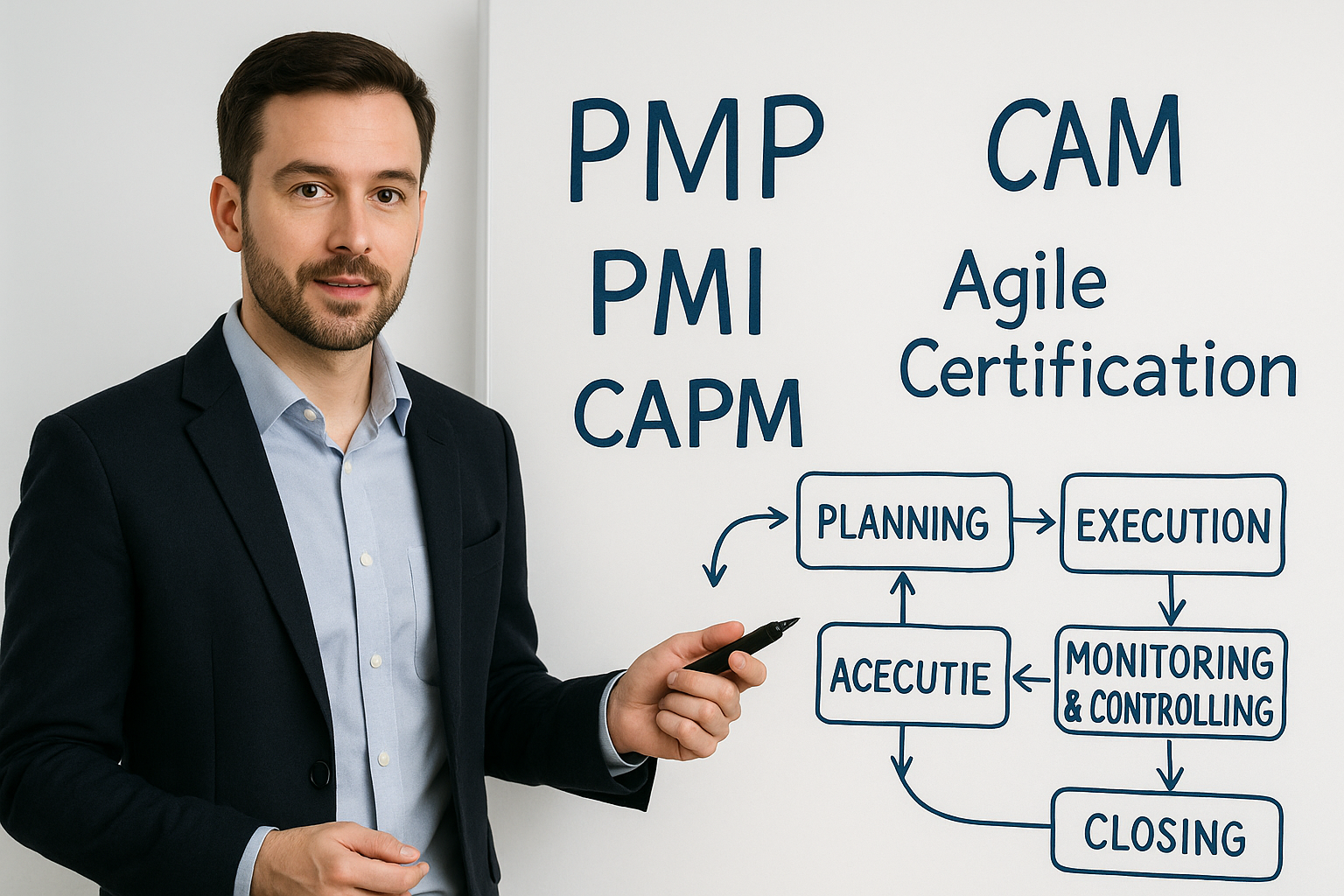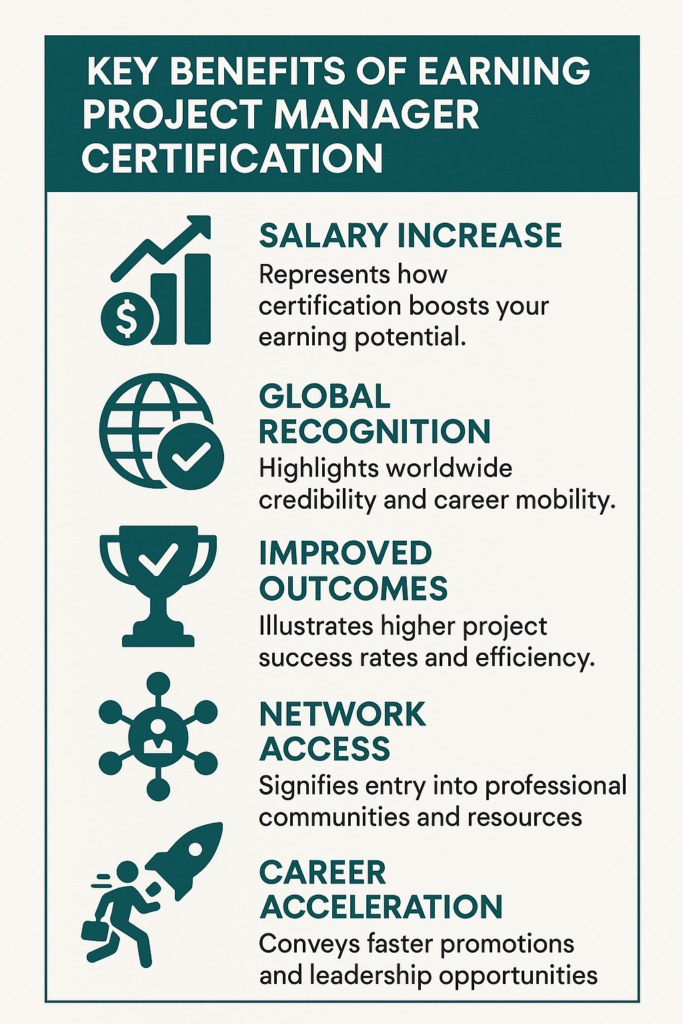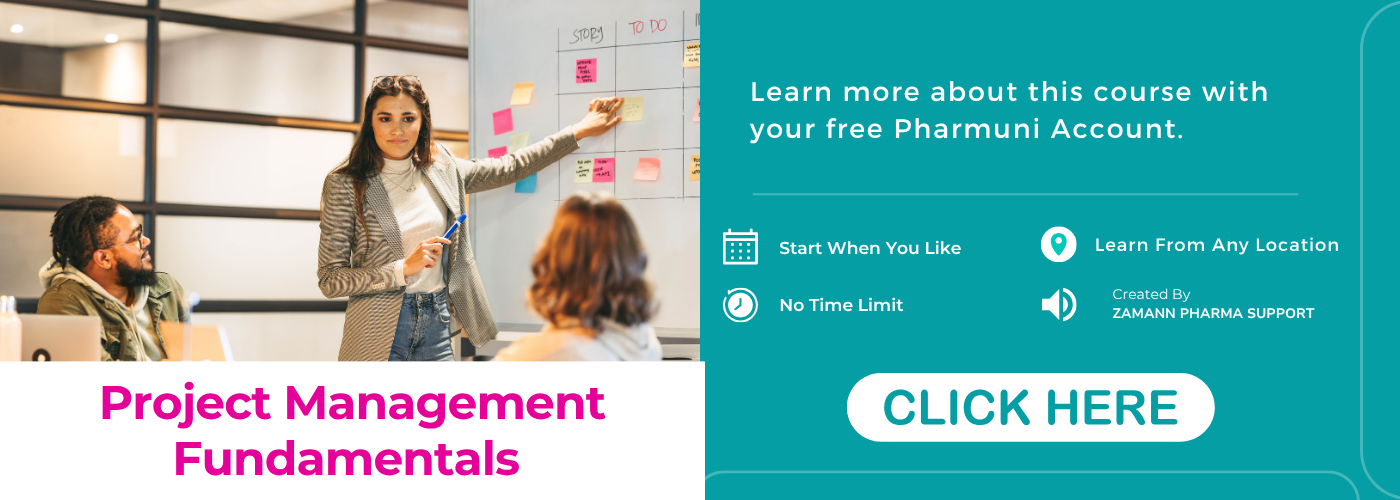Earning a Project Manager Certification can transform your career trajectory immediately. Furthermore, professionals with certifications like PMP often enjoy higher salaries and greater job security. Additionally, as industries embrace digital transformation, employers increasingly demand proof of Project Management Certification. Consequently, obtaining credentials from the Project Management Institute (PMI) or recognized providers like PRINCE2 enhances your credibility. Ultimately, this investment helps you stand out in a competitive market. Therefore, if you seek rapid career growth, read on as we explore definitions, objectives, comparisons, and actionable steps to earn your certification.
In fact, by the end of this article, you will know exactly how to begin your path to certification, including tips on PMP exam preparation and CAPM certification online.

What Is Project Manager Certification?
Project Manager Certification represents an official validation of your project management skills and knowledge. Consequently, it proves you understand industry best practices outlined in the PMBOK Guide. Furthermore, employers often list certifications such as PMP certification or Prince2 certification among top requirements in job postings. Therefore, obtaining credentials from PMI or other bodies—like PRINCE2, Agile Certification, and Scrum Master—significantly broadens your career options. In fact, statistics show that certified professionals earn on average 20% more than non-certified peers. Ultimately, such certifications also demonstrate your commitment to continuous improvement and lifelong learning.
By pursuing Project Manager Certification, you align with global standards set by the Project Management Institute (PMI). Consequently, you gain access to exclusive resources such as PMI-ACP®, PMI-RMP, and PgMP. Furthermore, these programs offer structured paths, guiding you through fundamental concepts, risk management, and portfolio management.
Main Objectives of Project Manager Certification
By mastering foundational concepts outlined in the PMBOK Guide, you prove your competence to employers.
With credentials such as PMP certification, recruiters prioritize your resume over non-certified candidates.
Agile methods like PMI-ACP and Scrum Master sharpen your ability to deliver projects on time and within budget.
Certifications from PMI, AXELOS, or PRINCE2 Foundation/Practitioner are recognized worldwide.
PMI members gain access to PMBOK, whitepapers, and networking events.
Holding credentials like CAPM or PMP instills confidence when leading cross-functional teams.
Earning PDUs with PMP renewal or PMI-RMP updates helps you stay current with industry trends.
Boost Your Career in Pharma Industry– Start Today!
How to Get Project Manager Certification: Step-by-Step Process
1-Verify Eligibility Requirements
Initially, confirm prerequisites for each certification. For PMP certification, you need either a four-year degree with 36 months of project leadership or a high school diploma with 60 months of experience, plus 35 contact hours of project management education. Additionally, document your project hours precisely when submitting the application to PMI. Meanwhile, for CAPM, ensure you hold a high school diploma and complete 23 contact hours through a CAPM Exam Prep course. Moreover, Prince2 certification requires no prerequisites at the Foundation level, but you must pass Foundation to attempt Practitioner.
2-Choose Accredited Training and Study Materials
Next, invest in reputable resources like the latest PMBOK Guide and recognized study aids. Additionally, enroll in a PMP training program or PMP Boot Camp offering practice exams, flashcards, and instructor support. Furthermore, for CAPM Certification Online, register for courses that mirror exam content. Likewise, pursue Prince2 Training Online or attend a Scrum Master workshop if you prefer agile environments. Consequently, these resources help you build a strong foundation and ensure you focus on key exam topics.
3-Submit Your Online Application
Subsequently, complete the online portal application on PMI’s website for certifications like PMP and CAPM. Furthermore, upload supporting documents, including educational transcripts and training certificates. Additionally, review your application meticulously before submission to avoid delays. Similarly, apply for Prince2 via the AXELOS portal, selecting the Foundation or Practitioner level based on your goals.
4-Schedule and Prepare for the Exam
After your application receives approval, schedule your exam at a convenient location or choose a remote proctored option. Furthermore, create a study schedule allocating sufficient time for each domain. Additionally, practice multiple full-length mock tests under timed conditions to build endurance. Likewise, review concepts such as Risk, Scope, Time, and Cost Management from the PMBOK Guide or PMI-ACP® handbook. Moreover, join online forums and local study groups to refine your understanding.
5-Ace the Exam and Obtain Your Certification
Finally, arrive early at the testing center or log in for your remote proctored exam. Furthermore, read each question carefully and manage your time effectively throughout the exam. Additionally, leverage test-taking strategies learned during PMP exam preparation. Consequently, after passing, download your digital badge, update your LinkedIn profile, and inform your network to maximize visibility.
Key Benefits of Earning Project Manager Certification
Higher Earning Potential
Additionally, earning PMP certification significantly boosts your salary prospects. Consequently, the global median salary for certified project managers stands at $115,000, compared to $90,000 for non-certified professionals.
Furthermore, according to PMI’s Talent Gap Report, organizations actively seek PM-certified individuals due to their demonstrated ability to manage scope, budget, and schedule effectively.
Additionally, companies recognize that investments in certified professionals yield higher project success rates. Therefore, by completing a PMP Training or PMP Online Course, you position yourself for raises, promotions, and executive roles.
Moreover, roles such as Program Manager and Portfolio Manager often require credentials like PgMP or Portfolio Management Certification, which further increase earnings.
Ultimately, this income advantage makes certification a strategic investment.

Global Recognition and Credibility
Credentials from Project Management Institute or PRINCE2 establish your reputation across industries.
Consequently, you gain instant recognition when applying for roles worldwide, from IT firms to construction companies. Additionally, international organizations, including the United Nations and NATO, mandate project management best practices aligned with PMBOK principles.
Furthermore, certifications like PMI-ACP®, PMI-RMP, and Six Sigma demonstrate specialized expertise in agile, risk management, and quality improvement. Moreover, this global standardization allows you to transfer skills seamlessly between roles and countries.
Therefore, earning a credential such as Prince2 certification or Lean Six Sigma enhances your professional credibility.
Ultimately, employers value certified professionals for their proven knowledge and ability to deliver results consistently.
Which Project Manager Certification Is Right for You?
Comparing PMP vs CAPM
PMP certification targets seasoned professionals with significant project leadership experience. Consequently, eligibility requires either a four-year degree and 36 months of leading projects or a high school diploma and 60 months of experience, plus 35 contact hours. Furthermore, exam fees range between $405 and $555 for PMI members and non-members. Moreover, PMP focuses on advanced topics from the PMBOK Guide, including integration, quality management, and communication strategies. Consequently, PMP-holders often secure senior roles, such as Director of Project Management, with average salaries exceeding $120,000 in the U.S. Conversely, CAPM certification suits entry-level professionals aiming to showcase their commitment to project management.
Comparing PRINCE2 vs Scrum Master
Consequently, PRINCE2 certification emphasizes process-oriented methodologies and governance structures. Therefore, you can pursue the Foundation level without prerequisites. Furthermore, you progress to Practitioner after passing Foundation, allowing you to apply concepts practically. Moreover, PRINCE2 credentials cost between $300 and $600 per level, and they hold strong value in government and regulated industries.
Essential Project Management Tools to Master
- Microsoft Project
This comprehensive scheduling tool helps you create Gantt charts and allocate resources effectively. It integrates seamlessly with Microsoft 365 for real-time collaboration. - Asana
A versatile platform that offers boards, timelines, and reporting features to manage agile sprints and traditional projects. It enables easy task assignment and status tracking. - Trello
A simple Kanban-style board that uses drag-and-drop cards for task management. It works well for smaller teams or projects requiring visual workflows. - Jira
A leading choice for software development teams, supporting Scrum and Kanban boards, backlog grooming, and advanced reporting for agile projects.
Conclusion: Build Your Career Strategy
Consequently, pursuing Project Manager Certification propels your career forward by demonstrating your mastery of industry standards and best practices. Furthermore, you gain access to higher salaries, leadership roles, and global recognition. Additionally, by mastering tools such as Microsoft Project, Asana, and Jira, you further showcase your readiness to lead modern projects. Moreover, certifications like PMP, CAPM, PRINCE2, and Agile Certification signify your commitment to excellence and continuous growth. Therefore, take the next step by enrolling in Pharmuni’s Project Management Fundamentals course, a PDU-accredited program designed to prepare you for certification success. Furthermore, explore additional courses at Pharmuni to build a robust skill set. Ultimately, transform your career today by investing in your professional future—start your journey now and witness the impact of certification on your success.
References

Ershad Moradi
Ershad Moradi, a Content Marketing Specialist at Zamann Pharma Support, brings 6 years of experience in the pharmaceutical industry. Specializing in pharmaceutical and medical technologies, Ershad is currently focused on expanding his knowledge in marketing and improving communication in the field. Outside of work, Ershad enjoys reading and attending industry related networks to stay up-to-date on the latest advancements. With a passion for continuous learning and growth, Ershad is always looking for new opportunities to enhance his skills and contribute to pharmaceutical industry. Connect with Ershad on Facebook for more information.

Master GxP Validation in 2026: Meaning, Key Steps, and Validated State Control
Auditors want evidence you can trace, not opinions you can explain. GxP validation links intended use, requirements, risk, and test results into one story. When you control changes and review performance, you keep the system inspection-ready every day on time.

Master GMP Compliance in 2026: Meaning, Core Elements, and How to Implement
GMP compliance keeps medicines safe, consistent, and traceable across every batch. This guide explains core GMP elements, practical rollout steps, and common pitfalls. It also shows how to strengthen training, documentation, data integrity, and audit readiness.

History of Pharmacovigilance: From the Thalidomide Crisis (1961–2026) to GMP Oversight
Thalidomide in 1961 changed drug safety forever. Since then, pharmacovigilance has grown from crisis response to proactive risk management. Today, teams track signals, tighten reporting rules, and connect safety data to quality systems. As a result, PV now links directly to GMP oversight, audits, and data integrity.




